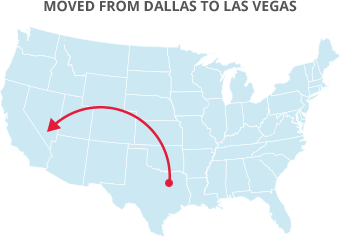
You’ve got a business to keep going. And now you‘ve got to keep it going while you’re moving it from one location to another! How do you keep your Little Rock business growing and the profits flowing while your furniture’s going out the door? That’s the essential question of office relocation! Give it a wrong answer, and your productivity and profits will go out the door with the furniture.
At A-1 Freeman Moving Group, we’ve got a right answer for you – one that’s predicated on helping prevent you from making 8 errors that we, as
office relocation specialists, find all too typically made:
- Not Planning Ahead. When you first get word that you’ve got to move, that’s when you should get down to planning for it. Alas, too many businesses get started on their office relocation planning a little too late. Too late for what, you ask? Well, too late for moving companies and other suppliers to come up with a proper proposal for you, let alone properly deliver the goods and services you purchase from them. It’s best to be mindful of one thing in particular: too little time usually opens the door for too many blunders. Let the size of your business and the complexity of your move – i.e., the number of steps that must be taken before other steps can be started – guide you in figuring out how soon is soon enough.
- Not Vetting Your Mover Completely. Office relocations are complex. You need a moving company that understands how to deal with office furniture and modular systems, computer systems and networking, office equipment, machinery, and hardware, cabling, phone systems, security systems, building permits, and ... that’s just for openers, make sure they’re legitimate. Visit https://ai.fmcsa.dot.gove/hhg/search.asp to see, first of all, that they’re U.S. Department of Transportation (DOT) licensed and insured, particularly for interstate commerce. Read the reviews at bbb.org. to find out if any complaints have been filed against them with the Better Business Bureau. And, if you can, speak with other firms who’ve employed them to find out how well they fulfilled their contractual responsibilities. It’s also prudent to ask about their moving crews – whether they’re full-time employees or temps, whether they’ve been background checked and drug tested, and whether they observe conventional chain-of-custody procedures.
- Not Coordinating and Communicating Sufficiently with Your Mover. Your office relocation manager must work with the project manager your moving company has alloted to see that your internal team and the moving company’s team are in perfect sync. Any [[changes in the schedule must be properly communicated to everyone involved, thus helping prevent one problem from giving rise to others and causing all sorts of glitches and cost overruns.
 Not Committing Enough Internal Staff to Your Move. The complexity of any office relocation fairly stipulates that you enlist the help of personnel from within your company. Pick people in each department who understand their department’s needs thoroughly and have access to pertinent company records. That might not always be the department head! To be honest, you’re often better off asking for the help of seasoned but non-managerial staffers, as they’re more likely to submit to your relocation manager’s direction without argument.
Not Committing Enough Internal Staff to Your Move. The complexity of any office relocation fairly stipulates that you enlist the help of personnel from within your company. Pick people in each department who understand their department’s needs thoroughly and have access to pertinent company records. That might not always be the department head! To be honest, you’re often better off asking for the help of seasoned but non-managerial staffers, as they’re more likely to submit to your relocation manager’s direction without argument.- Not Keeping to Schedule. It’s rarely the case that an office relocation schedule loses speed. Yes, various tasks can be held up for this or that reason. But what generally happens then is that the schedule is squeezed. And that generally happens because the planning got off to a late start. And what happens when you attempt to compensate for lost time? More people from your end and the mover’s end are given more overtime hours. Everybody starts tripping over everybody else. Things get confusing. Mistakes are made. And who pays for all this? Yep. Better to create a pragmatic schedule from the get-go and follow it.
- Not Budgeting Enough for Your Move. Frankly, it’s difficult for any company that hasn’t undertaken a relocation before to know just what its move will end up costing. To leave that cost to happenstance, though, or to budget for it insufficiently is a big mistake! At the outset, you have to allow for recurring real-estate costs, soft-dollar expenses for, say, employee relocation and training, capital expenses like new furniture and office equipment purchases, moving expenses, and consulting expenses for such things perhaps as interior design and engineering. The more of your likely expenditures you take into consideration at the start, the more governable the expense of your office relocation will be.
- Not Having Enough Coverage. If you’ve selected a professional relocation company of any reputation, the possibility of property damage is slim. Nevertheless, you ought to be prepared. Talk with your mover about the coverage options they offer and pick the one that best accommodates your business.
- Not Thinking to Back Up Your Data. No need for horror stories here. Suffice it to say that while your office relocation is underway, your company’s material records are best protected by being backed up digitally, whenever practicable. Those that can’t be digitized should be kept safely in a warehouse. And your digital data ought to be backed up in the cloud. As a matter of historical precedence212, losing such data or suffering its destruction isn’t a regular phenomenon. But do you really want to risk it? Then, however you can, back it up!
An excellent way to prevent these sorts of blunders – or to offset them effectively – is to sign on with a moving company that has a verifiable track record of successful office relocations. May we propose A-1 Freeman Moving Group right here in Little Rock? Check us out as we suggest above. Then look over our
office relocation services and ...
Request a free quote



 You’ve got a business to keep going. And now you‘ve got to keep it going while you’re moving it from one location to another! How do you keep your Little Rock business growing and the profits flowing while your furniture’s going out the door? That’s the essential question of office relocation! Give it a wrong answer, and your productivity and profits will go out the door with the furniture.
You’ve got a business to keep going. And now you‘ve got to keep it going while you’re moving it from one location to another! How do you keep your Little Rock business growing and the profits flowing while your furniture’s going out the door? That’s the essential question of office relocation! Give it a wrong answer, and your productivity and profits will go out the door with the furniture. Not Committing Enough Internal Staff to Your Move. The complexity of any office relocation fairly stipulates that you enlist the help of personnel from within your company. Pick people in each department who understand their department’s needs thoroughly and have access to pertinent company records. That might not always be the department head! To be honest, you’re often better off asking for the help of seasoned but non-managerial staffers, as they’re more likely to submit to your relocation manager’s direction without argument.
Not Committing Enough Internal Staff to Your Move. The complexity of any office relocation fairly stipulates that you enlist the help of personnel from within your company. Pick people in each department who understand their department’s needs thoroughly and have access to pertinent company records. That might not always be the department head! To be honest, you’re often better off asking for the help of seasoned but non-managerial staffers, as they’re more likely to submit to your relocation manager’s direction without argument.